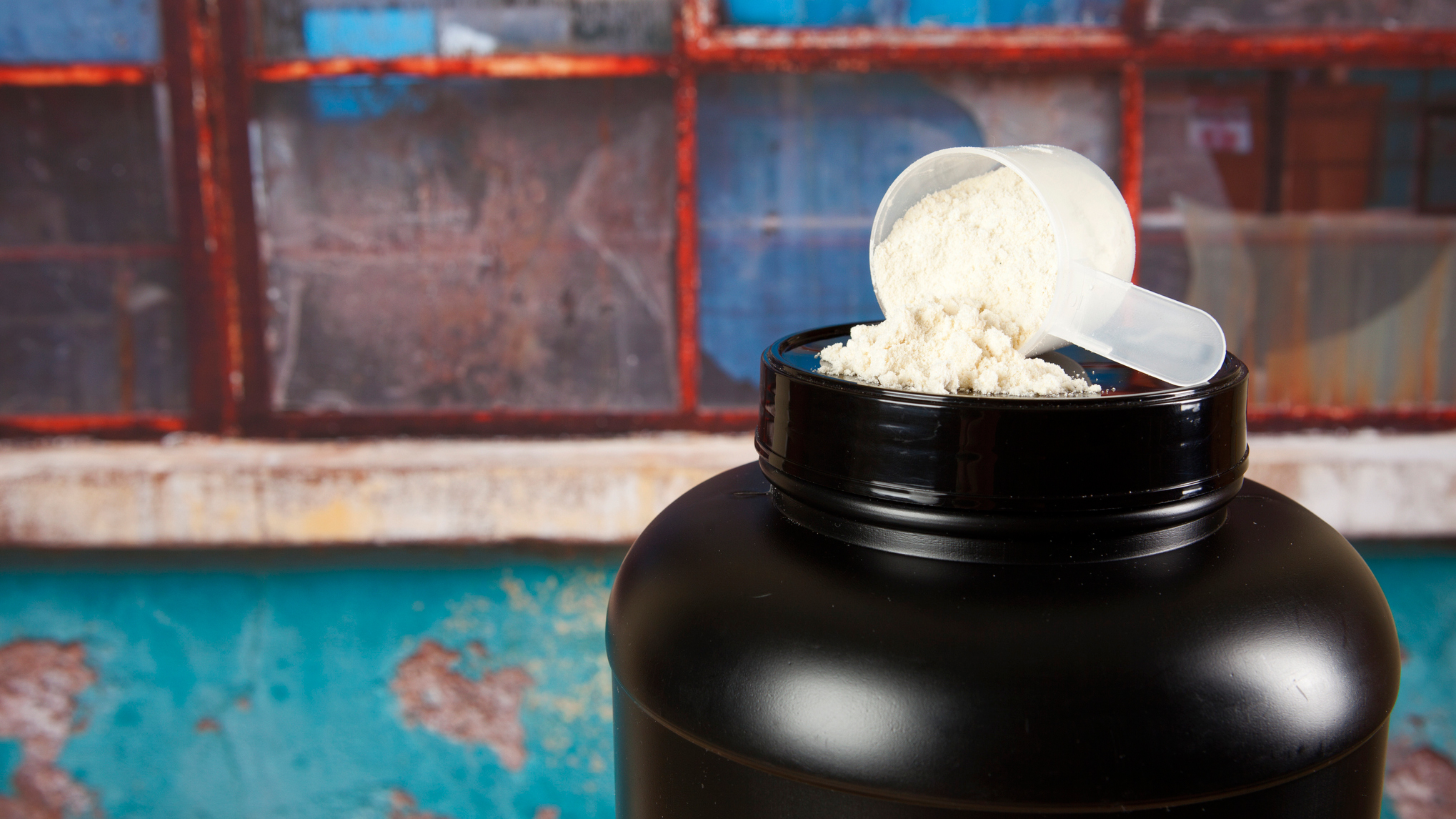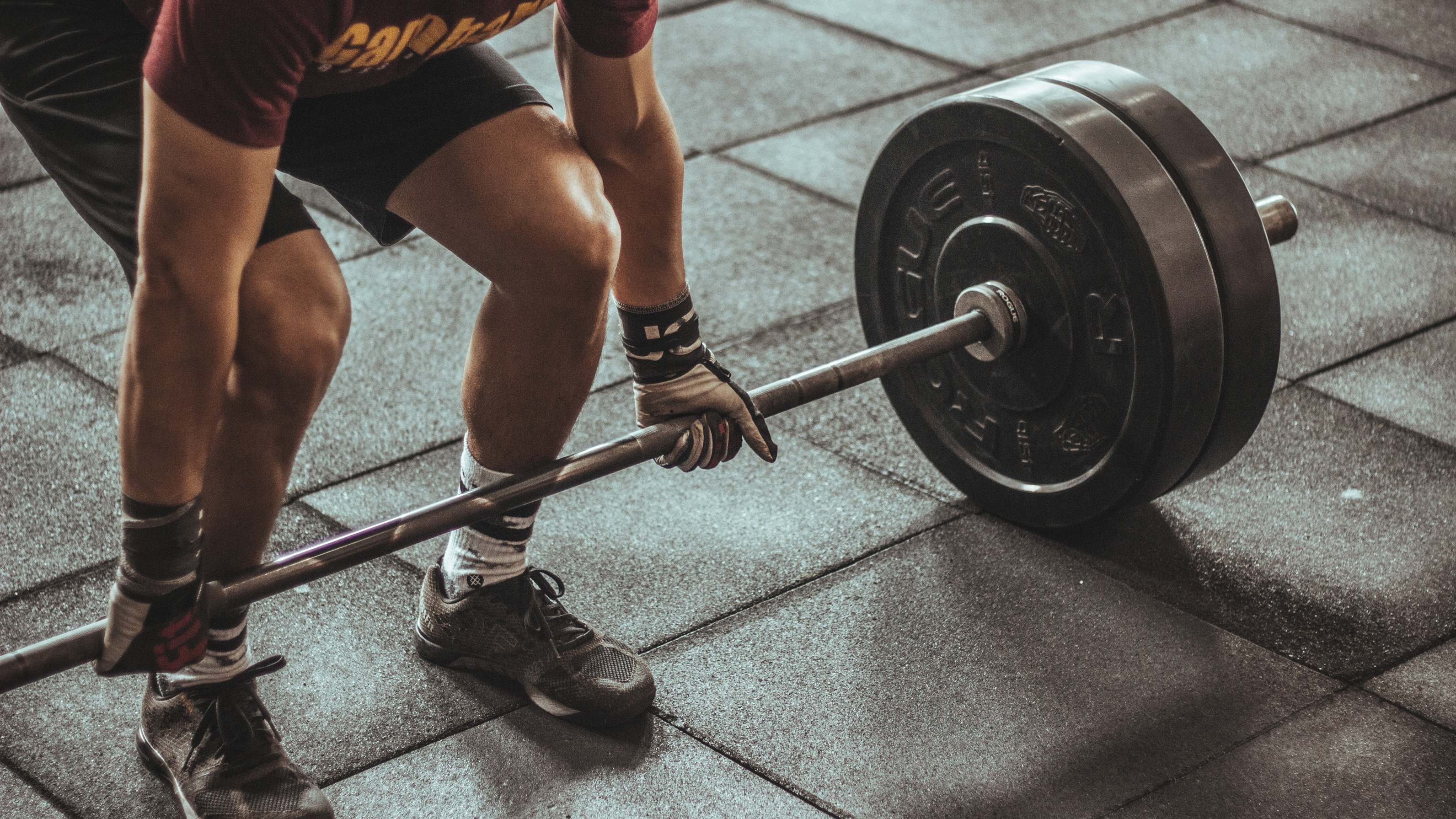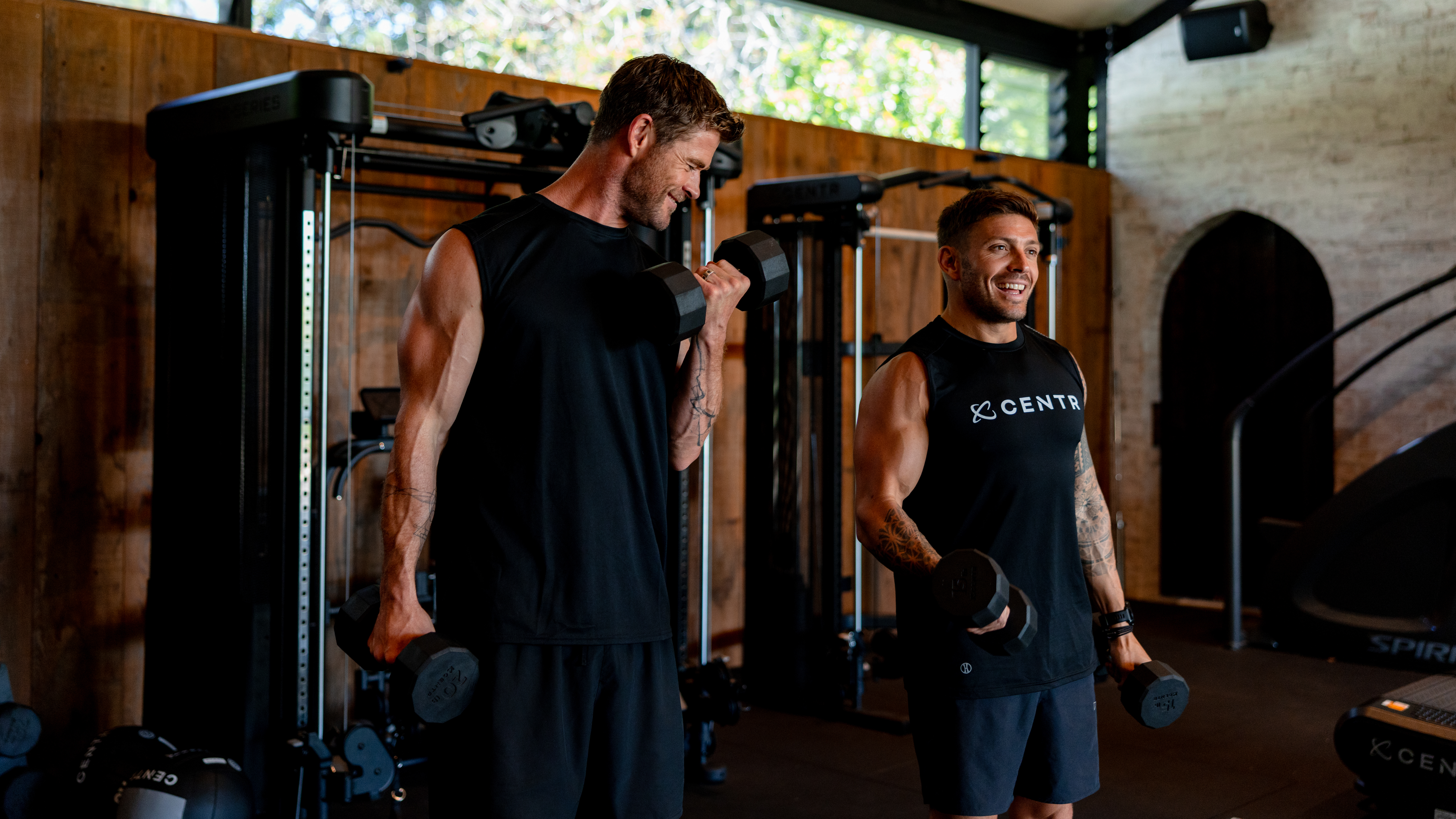How to use protein powder to lose weight or gain muscle
Want to drop pounds or get stronger? Protein powder could be your secret weapon


Want to know why to use protein powder to lose weight or gain muscle? You’re in the right place. First thing's first: if you're doing resistance training exercise, your muscles need protein – long-chain amino acid molecules, that are part of most of our cells.
As the building-blocks of the body, protein is a an macronutrient that is essential for growth and repair, as well as keeping us healthy. Too little protein, and our muscles are unable to maintain their health and grow weak, undergoing a process known as “atrophy”.
Most adults need around 0.75g of protein per kilo of body weight per day (for the average woman, this is 45g, or 55g for men) - that's about two portions of meat, fish, nuts or tofu per day. If you're undergoing a resistance training program, you might need more protein to build an increasing amount of muscle.
We can get all the protein we need from food, explains health and lifestyle coach Ryan Hodgson, “but protein powders are an easy option for people on the go, and a way to get a good serving of protein with less of the other macro nutrients like carbs and fats.”
Whatever your fitness and health goals, we’re here to tell you all about how to use protein powder for weight loss or muscle gain. While you're at it, you need a protein powder of good quality that's right for your goals: to get started, check out our guides on the best protein powder for weight loss, and the best protein powder for women.

Why use protein powder?
If you want to slim down or gain muscle, protein powders are a convenient, affordable and hassle-free place to start. One of protein’s most important jobs is to repair and build cells in the body, including muscles that are damaged while exercising.
Ryan says: “Protein helps restore and retain muscle, and the more muscles we have the more calories we burn. While a high protein diet can help weight loss as protein takes longer to digest and is so filling.”
Get the Fit&Well Newsletter
Start your week with achievable workout ideas, health tips and wellbeing advice in your inbox.
Studies have found this clever macronutrient can even make us less likely to overeat. This is in part thanks to protein’s ability to reduce the level of hunger hormone ghrelin, while boosting levels of peptide YY (the hormone that makes us feel full). https://pubmed.ncbi.nlm.nih.gov/16469977/
Dee Momi, chef, nutritionist and founder at protein shake company MINT adds: “When it comes to weight loss, shakes with a high protein content can rev up your metabolism because of the number of calories needed to digest it - up to 30% of calories from protein are burned compared with around 10% of calories from carbohydrates. High protein drinks also encourage fullness and satiety so we feel satisfied, which is essential when trying to lose weight and keep blood sugar levels balanced.”
Lots of protein powder brands include natural fat-burning ingredients in their products, such as green tea and metabolism-boosters, L-carnitine and CLA, which can promote weight loss.
But health and lifestyle coach Ryan Hodgson warns: “Don’t expect to grow muscles overnight just because you’re using protein powder – it should be part of a balanced, healthy diet and supported with regular exercise.” That means resistance training, either with your bodyweight or weights, such as the best adjustable dumbbells.
How to use protein powder
You can mix protein powder with water, milk, coconut milk or whip it into a smoothie in one of our best blenders. You can cook with it (my kids love it in pancakes and healthy muffins).
Some studies suggest that the best time to drink a protein shake is during the “anabolic window” – the 30-minute period after exercise when your muscles are repairing and recovering. The idea is that drinking a shake in this window can boost recovery by flooding the bloodstream with amino acids, which are used to make new muscle tissue.
However a 2017 study found that pre and post-workout protein intake had the same effect on muscle repair and growth. Ryan recommends: “As long as you’re getting a good source of protein within 3-4 hours of training, your recovery will be as good as it can be.”
Whey protein is one of our favourites for immediately post-training as it is fast-digesting. Casein, a slow release protein, is a good shake to drink before bed, as it drip-feeds muscle-building amino acids into the bloodstream to rebuild muscle tissue – all while you sleep.

Should you drink a protein shake on rest days?
Recovery occurs after you exercise, so just because you’re not being active doesn’t mean you should ditch the protein.
It can take up to 48 hours for the body to recover after a challenging workout so you still need protein to repair tissue and build muscle. Try to eat 20-30 grams of protein several times throughout the day to keep recovery constant. Protein shakes on rest days are also a great way to keep blood sugar levels stabilised and stop you from mindless snacking.
Which protein powder is suited for your goals?
If you’re after the best protein powder for weight loss, then choose products with a low carb, low sugar and low calorie content. They also need to be high in protein of course – that magic ingredient that studies have shown can help us stay full and fight sugar cravings.
Dee Momi says: “A protein powder fortified with essential vitamins and minerals is a good option if you are trying to lose weight: for example, the MINT Chocolate + Vanilla powders are vegan, gluten-free, low calorie (87-93kcal) and contain 25% of the recommended daily allowance of vitamins/minerals per serving as well as 18g protein.
“To get the most out of your protein powder, I would suggest treating it like a balanced meal by combining it with carbohydrates and fat - including ingredients such as frozen bananas, oats, berries, nut butters, avocado or coconut milk.” You can include protein powder like this in fortifying, filling shakes as a meal replacement, but beware of making too many drastic lifestyle changes too quickly: it's more sustainable in the long run to make sure you're having healthy whole foods, three times a day.
Looking to gain weight sustainably and safely and build muscle mass? Choose a higher calorie powder and opt for whey protein. Research suggests that using this, along with resistance training, can help maintain lean body mass and increase upper and lower-body strength.
But avoid whey if you’re vegan, as it’s made from milk. Opt instead for a plant-based product, like pea or hemp protein.
Maddy Biddulph is a freelance journalist specializing in fitness, health and wellbeing content. With 26 years in consumer media, she has worked as a writer and editor for some of the bestselling newspapers, magazines and websites in the US and UK.
She is also a qualified L3 personal trainer and weight loss advisor, and helps women over 40 navigate menopause by improving their physical and mental strength. At Maddy Biddulph Personal Training, she runs one-to-one and small group training for menopausal women who want to get fit to ease symptoms and feel like themselves again.
-
 Build blockbuster arms and abs with Chris Hemsworth's go-to dumbbell circuit
Build blockbuster arms and abs with Chris Hemsworth's go-to dumbbell circuitAll you need are adjustable dumbbells and 20 minutes
By Sam Rider Published
-
 Forget crunches—if I wanted to improve core strength I'd do this neck-friendly Pilates workout
Forget crunches—if I wanted to improve core strength I'd do this neck-friendly Pilates workoutAnd it takes just five minutes
By Maddy Biddulph Published